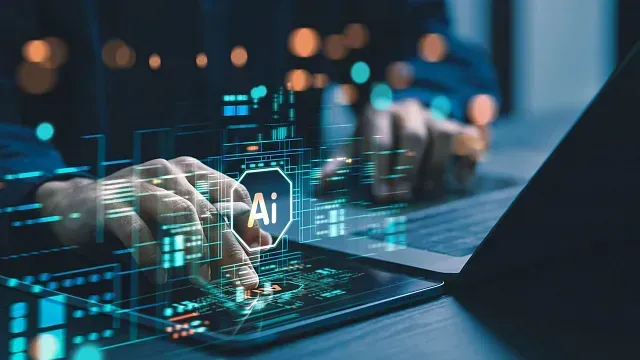Harnessing AI for a transformative South African education system
BEACON OF HOPE

AI could reshape the future of education for all South African children, but it requires innovative solutions, local collaboration, and investment to ensure that no pupil is left behind.
Image: TVBRICS
As artificial intelligence (AI) permeates daily life, South Africa finds its education system at a crucial juncture. The immense promise of AI in revolutionising education is met with stark realities, such as inconsistent internet access, recurrent power outages, and outdated resources threatening to widen existing educational disparities.
“AI has emerged as a beacon of hope for education on the continent, promising to personalise lessons for a child in a remote village or automate grading for overworked teachers in urban townships,” said Dr Gillian Mooney, Executive: Teaching & Learning at The IIE’s Academic Centre of Excellence. Speaking at the recent Global AI in Education Conference, Dr Mooney illuminated the potential of AI while highlighting the barriers that could hold back its benefits from reaching those who need it most.
Dr Mooney pointed to initiatives such as the Invigilator App, a homegrown solution designed to maintain online exams even during periods of loadshedding, as evidence that innovation in education is possible locally. She cautions, however, that if urgent and bold action isn’t taken, AI risks deepening social divides rather than bridging them.
“On a continent where billions lack reliable electricity or affordable smartphones, rolling out AI without addressing these basics, risks leaving the most marginalised behind,” Dr Mooney explained, emphasising the need for public-private partnerships to leverage AI in a manner that serves Africa meaningfully.
AI’s potential for personalisation is already being realised in South Africa's top schools. By tailoring lessons to individual student needs and pacing, AI aids educators, allowing them to focus on their core mission: inspiring young minds. Platforms developed by leading companies like ADvTECH track students’ progress in subjects like maths and science instantly, identifying learning struggles before class begins.

Dr Gillian Mooney, Executive: Teaching & Learning at The IIE’s Academic Centre of Excellence
Image: Supplied
The implications for underserved communities are particularly promising. For students with disabilities, AI can provide adaptive tools that read texts aloud or simplify content. Language learning apps can immerse students in their mother tongue while enhancing their global tech proficiency. Furthermore, vocational training is revolutionised through AI-driven simulations that offer hands-on experience in fields like welding or entrepreneurship, preparing a generation to not merely survive, but to flourish in an unpredictable world.
Yet, the optimism surrounding AI must contend with fundamental challenges. The significant issue of the digital divide looms large, as many regions in South Africa grapple with limited internet access and ongoing loadshedding, raising questions about how to develop AI solutions that can withstand such setbacks.
Dr Mooney also warns against bias in AI education tools. If training datasets reflect pre-democracy prejudice, they might exacerbate racial or gender stereotypes in educational assessments or recommendations. Citing instances of facial recognition technology failing to accurately identify dark skin tones, she implores that education must not allow similar blind spots.
Additionally, the teaching profession faces its own uncertainties. While fears about job displacement and de-skilling are valid, Dr Mooney advocates for a paradigm shift where AI empowers rather than supplants educators. She believes that comprehensive training programmes can enable teachers to thrive alongside AI, emphasising the human elements — empathy, ethical reasoning, and cultural context — that machines cannot replicate.
The call for action is evident. Dr Mooney insists on the necessity for:
- Robust Policy Frameworks: Governments must establish ethical AI guidelines, from data privacy to accessibility mandates.
- Infrastructure Investment: Increased funding is crucial for broadband expansion, affordable devices, and renewable energy sources to connect all regions.
- Teacher Empowerment: Training should weave AI into everyday teaching, enhancing confidence and innovation among educators.
- Research and Development: Homegrown AI hubs can foster African talent and encourage interdisciplinary innovation.
- Public-Private Partnerships: Collaboration among government and educational institutions is key to developing scalable, context-specific solutions.
“The future of African education, empowered by AI, is not a distant dream; it is an unfolding reality,” says Dr Mooney, envisioning an educational landscape where every child, irrespective of their background or location, has access to quality, personalised learning experiences. “It requires Africa to seize this moment with courage, wisdom, and a collective commitment to crafting an educational future that is transformative, authentically African, and fundamentally human.”
IOS
Related Topics: